Navigating the process of starting addiction treatment can be an overwhelming task, particularly when it comes to figuring out how to pay for it. One of the most frequently asked questions is, “Does insurance cover drug rehab?” The response is rarely straightforward, but knowing your options can help relieve some stress as you begin this important journey toward sobriety.
Does Insurance Cover Drug Rehab?
The amount of insurance coverage for drug rehab will depend on what type of health insurance plan you have and which treatment program you’re interested in. Most health plans should provide some form of coverage for substance abuse treatment because they are required to do so under the Affordable Care Act (ACA). However, this does not mean that all policies or providers offer the same level or type of benefits.
Types of Insurance Policies
Private Health Insurance
These plans may be purchased individually or provided by an employer. They typically cover a range of addiction treatments, but there may be restrictions.
Medicaid and Medicare
Government-funded programs that offer more extensive coverage for substance abuse treatment, especially if certain income or age requirements are met.
Military Insurance
Comprehensive coverage for active duty service members, veterans, and their families through programs like TRICARE.
Inpatient vs Outpatient Addiction Treatment Services
Most insurance companies differentiate between two types of services in their coverage:
- Inpatient Services: This involves receiving 24/7 care within a residential facility. Coverage here might be more limited than outpatient services or require higher patient co-pays.
- Outpatient Services: This entails visiting a treatment center at scheduled times throughout the week while continuing to live at home. Plans such as Intensive Outpatient Programs (IOPs) or Partial Hospitalization Programs (PHPs) generally have broader benefits available under them than those restricted solely to either setting alone would offer.
Specific Therapies That Are Often Covered By Insurance
Many different therapies and treatments can be covered by insurance, including:
- Medication-Assisted Treatment (MAT) – Combining medications with counseling and behavioral therapies.
- Dialectical Behavior Therapy (DBT) is a cognitive-behavioral therapy that focuses on emotional regulation.
- Cognitive Behavioral Therapy (CBT) – Helps patients recognize and change destructive behaviors.
- Family Therapy – Designed to improve the family dynamic and support system around the person struggling with addiction.
- Individual Therapy – One-on-one sessions with a licensed counselor or therapist who specializes in substance abuse disorders.
The Fine Print: Preauthorization and Medical Necessity
One important thing to note is the requirement for preauthorization by many insurance companies before they will cover specific treatment modalities. This often involves proving that the particular course of action is medically necessary, which can sometimes be an uphill battle depending on the circumstances involved.
Copays, Deductibles, and Out-Of-Pocket Maximums
Knowing what these terms mean can save you a lot of money out-of-pocket later down the road. Here is a simple breakdown:
- Copay: A set fee you are responsible for paying at the time of service for a covered benefit under your policy terms and conditions.
- Deductible: The amount of money you must pay each year yourself before your insurance coverage takes effect (i.e., starts “kicking in”).
- Out-of-Pocket Maximum: The most you will have to spend in any given calendar year from your funds towards healthcare expenses for services subject to cost-sharing requirements such as copays, coinsurance percentages, or deductibles mentioned above. Once this limit has been reached, all additional costs are paid 100 percent by the insurer themselves without any further financial responsibility on the part of the insured individual being required anymore thereafter during the remainder period covered under the current contract year agreement period.
The Benefits of Drug Rehab with Insurance
Financial Relief
One of the most significant benefits of having insurance cover drug rehab is the financial relief.
The cost of addiction treatment can run into thousands of dollars, making it financially burdensome for many families without insurance.
Better Quality of Care
Insurance coverage often means better quality treatment facilities where a more comprehensive range of therapies are available. This increases the chances for successful long-term recovery.
Legal Safeguards
Insurers are required by laws like the Mental Health Parity and Addiction Equity Act (MHPAEA) to provide benefits at the same level for mental health and substance use disorder services as they do for medical or surgical care.
Tips on How to Maximize Your Insurance Benefits
- Read Your Policy: Always go through the fine print to know what’s covered and what’s not.
- Talk to Providers: Contact your insurance company and the drug rehab facility to have any coverage queries answered.
- Get Second Opinions: Sometimes, different representatives may give slightly different information; cross-verifying with another source can be helpful.
Insurance Coverage for Drug Rehab and Compassionate Care at Southern Sky Recovery
Knowing whether or not insurance covers drug rehab can be life-changing during your journey towards recovery. With this knowledge, one can navigate complex policies while focusing on more important things, such as getting well again. At Southern Sky Recovery, we understand that family comes first in addiction treatment centers, and our team genuinely cares about each individual’s well-being. We offer several levels of care, including IOP, PHP, and Outpatient Services.
Do not let financial constraints hinder you from seeking help today. Reach out now and take a step towards a brighter future.



